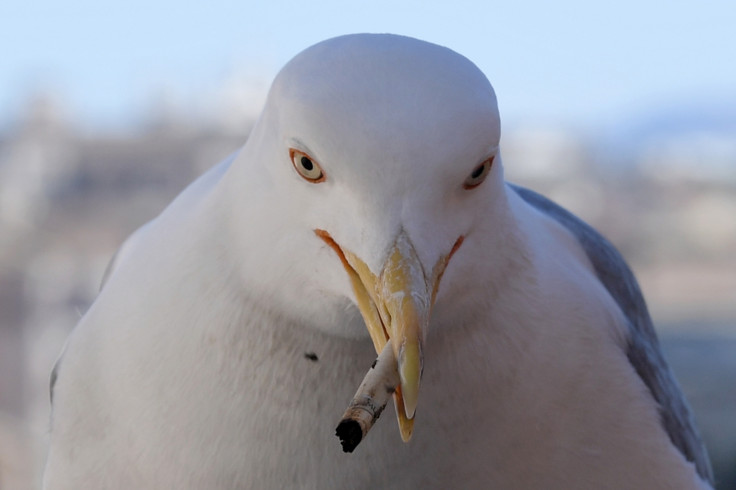Seagulls litter Mullion Island with elastic bands
Protected nesting site Mullion Island is littered with elastic bands as sea-gulls mistake them for worms.
Rangers who look after the uninhabited Mullion Island have found a worrying sign. Massive numbers of elastic bands have been found littering the small island off the Cornwall coast. Rangers have come to the conclusion that the seagulls which inhabit the island are ingesting the brightly coloured bands which they are then regurgitating on the island.
Even though the small island is close to the Cornwall coast, it is not inhabited by humans. Yet, the uninhabited island has not been spared from the onslaught of pollution. Large numbers of tan, green and yellow elastic bands have been found littering the island. The non-biodegradable waste found on the island includes bits of fishing-net and twine.
The disturbing discovery of the National Trust rangers did not end at the regurgitated waste. The corpse of a dead gull clearly indicated the cause of death. A 10cm fishing hook was embedded into the bird's body which had led to its death.

Access to Mullion Island is restricted by the National Trust. Even the rangers who regularly visit the island to monitor the birds have to get special permits to set foot on the island. The restrictions are in place to protect the nesting site of Black-backed Gulls, Herring Gulls, Cormorants, and Shags.
Sky News points out that the population of the Black-backed gull has fallen by 30%. The Herring Gull has been relisted on the United Kingdom Red List of Birds of Conservation Concern due to a drop in breeding population.
Rangers reported that they had made trips to clean the litter in Autumn, when the nesting season ended. During the trips, the rangers collected thousands of elastic bands as well as fishing waste. National Trust conservationists are concerned since the 2019 breeding season has been a poor one.
The National Trust believes that the elastic bands are being ingested by the birds as they mistake them for worms. Horticultural fields near the island use the bands to tie bunches of flowers. When these are discarded, the birds end up ingesting them.
The conservation site has been polluted by humans who have no idea that their actions are having such dire consequences. Local businesses have been urged by the National Trust to dispose of their waste carefully.
© Copyright IBTimes 2025. All rights reserved.





















